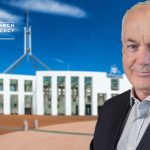- NMOSD are autoimmune demyelinating diseases targeting the optic nerves, spinal cord, and certain brain areas, often mistaken for MS.
- The Federal Government announced the listing of ravulizumab (Ultomiris®) on the Pharmaceutical Benefits Scheme (PBS) for adults with NMOSD, making this treatment more affordable.
- This is a historic milestone, as ravulizumab is the first treatment for NMOSD to be included on the PBS.
The Federal Government has announced the listing of ravulizumab (Ultomiris®) on the Pharmaceutical Benefits Scheme (PBS) for the treatment of adults with neuromyelitis optica spectrum disorders (NMOSD). This is a historic milestone as ravulizumab is the first-ever treatment specifically for NMOSD to be included on the PBS.
Ravulizumab was approved by the Therapeutic Goods Administration (TGA) in July 2024 for the treatment of adults with NMOSD. While the TGA approves the use of medications in Australia, it is up to the Pharmaceutical Benefits Advisory Committee (PBAC) to recommend whether it should be listed on the PBS to make it affordable to all Australians.
The PBAC is required to consider many factors when making recommendations, including the effectiveness and cost of a treatment relative to other available medicines, and the cost to the government of a new listing. Once a medication receives a positive recommendation from the PBAC, it is then submitted to the Federal Government for final approval.
What is NMOSD?
NMOSD are forms of autoimmune demyelinating diseases that specifically attack and inflame optic nerves, the spinal cord and some other specific locations in the brain. Early in the disease course, NMOSD can easily be mistaken for MS, but it is a different immune-mediated disease with distinct treatment and management approaches.
People with NMOSD have antibodies in their blood that attack a protein called aquaporin-4 (AQP4) in astrocytes (a type of brain cell), damaging optic nerve cells. The complement system, a part of the body’s immune system, facilitates these attacks by destroying cells with a membrane attack complex.
Current treatments for NMOSD involve managing acute attacks and preventing relapses. Specific treatments for NMOSD are not yet on the PBS, and general immunosuppressants used to prevent relapses are prescribed off-label.
The inclusion of ravulizumab on the PBS is a historic breakthrough, marking a transformative step forward in NMOSD care. This listing will improve access to a treatment that has been shown in clinical trials to be both safe and effective.
MS Australia strongly advocated for this milestone by providing a submission to the PBAC in support of ravulizumab (Ultomiris®). The submission can be viewed here.
How does ravulizumab work and what does the clinical trial show?
With ravulizumab now listed on the PBS, it’s important to understand how this treatment works and the evidence supporting its effectiveness. This treatment works by blocking the complement system, preventing the destruction of astrocytes.
A recent phase 3 clinical trial showed that ravulizumab significantly reduces relapses in people with NMOSD who are AQP4 antibody-positive compared to those taking a placebo (mock treatment). Additionally, people on ravulizumab experienced less mobility-related disability, with most side effects being mild to moderate. Ravulizumab is administered intravenously every eight weeks in adults, following a loading dose.
What does this mean?
This landmark decision by the Federal Government ensures that adults living with NMOSD will have affordable access to the first-ever PBS-listed treatment for the condition. This milestone represents a significant advancement in NMOSD care, offering new options for people living with NMOSD and their healthcare providers.
MS Australia continues to advocate for systemic changes that will improve the lives of people with MS and MS-related disorders. It remains committed to ensuring that all Australians living with MS and MS-related disorders can benefit from a healthcare system that is inclusive, accessible, and equitable.



